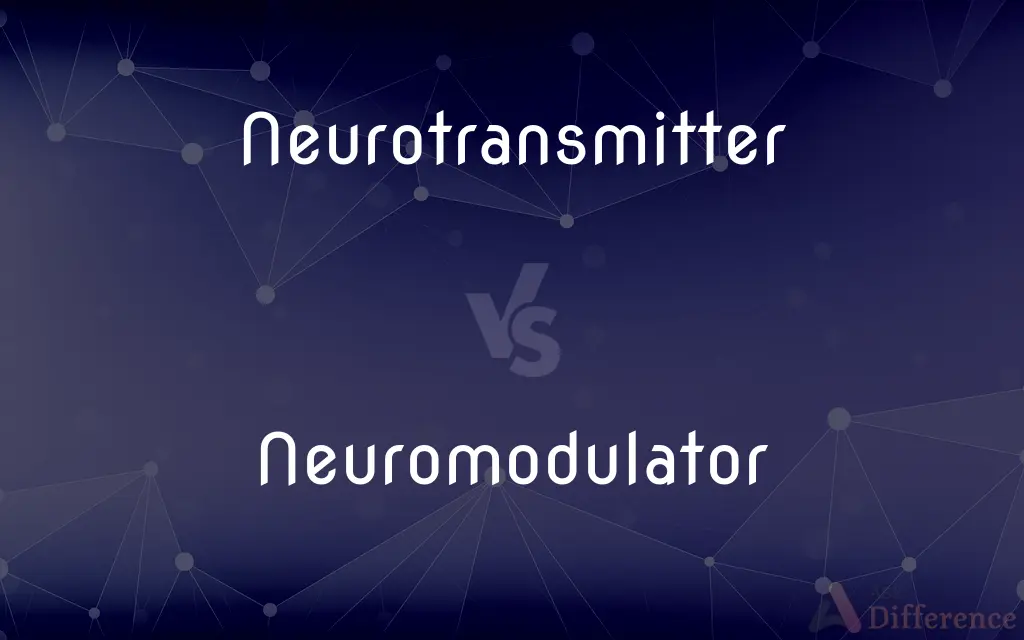Neurotransmitter vs. Neuromodulator — What's the Difference?

Difference Between Neurotransmitter and Neuromodulator
ADVERTISEMENT
Compare with Definitions
Neurotransmitter
Neurotransmitters are chemical messengers that transmit a signal from a neuron across the synapse to a target cell, which can be a different neuron, muscle cell, or gland cell. Neurotransmitters are chemical substances made by the neuron specifically to transmit a message.Neurotransmitters are released from synaptic vesicles in synapses into the synaptic cleft, where they are received by neurotransmitter receptors on the target cell.
Neuromodulator
A chemical substance or medical device that affects synaptic transmission in nerve cells.
Neurotransmitter
A chemical substance, such as acetylcholine or dopamine, that transmits nerve impulses across a synapse.
Neuromodulator
(neuroscience) A substance other than a neurotransmitter, released by a neuron at a synapse and conveying information to adjacent or distant neurons, either enhancing or dampening their activities
Neurotransmitter
Any substance, such as acetylcholine or dopamine, responsible for sending nerve signals across a synapse between two neurons.
ADVERTISEMENT
Neurotransmitter
Transmits nerve impulses across a synapse
Share Your Discovery

Previous Comparison
Craniocele vs. Encephalocele
Next Comparison
Blink vs. Blind













































